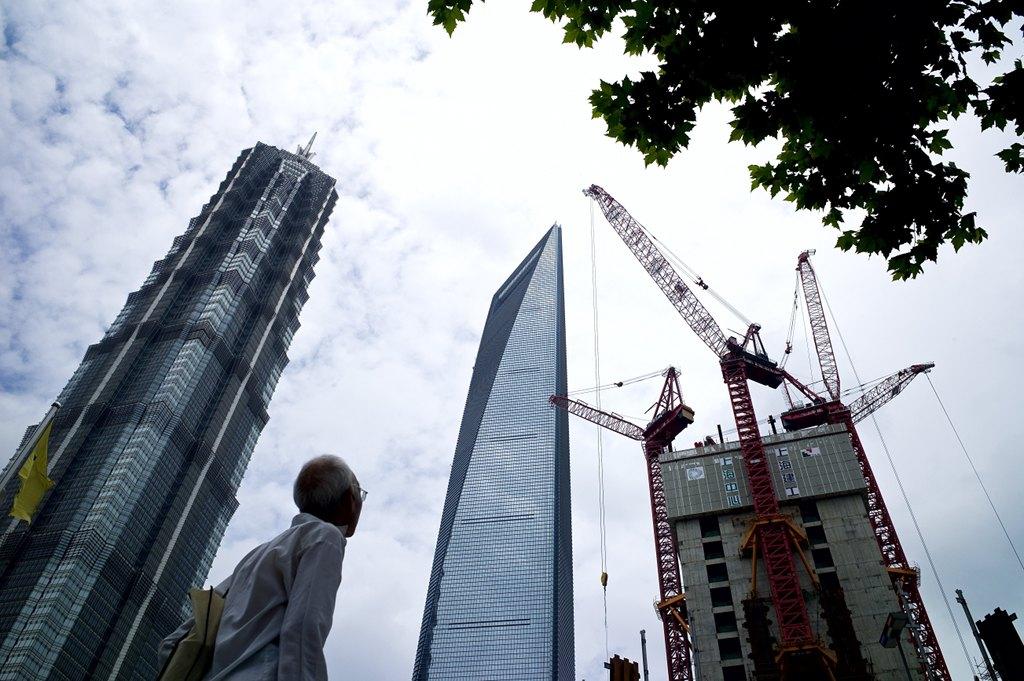China and the $100 billion bailout question
China’s construction boom and appetite for bold buildings have given architects the chance to push design boundaries, amid a slowdown in Europe and North America.
BEIJING, China — The European Union’s bailout fund is looking to raise more cash from China, but what China might want in return for a big, new investment in the fund is the $100 billion question.
The head of the EU’s newly expanding emergency account visited Beijing this week, for what he described as routine meetings with banks and finance officials, seeking to court potential investors for EU bonds.
But Klaus Regling, chief of the European Financial Stability Facility (EFSF), would not disclose the identities of would-be Chinese investors, amounts or any possible stipulations China might ask from the EU in exchange for its increased investment.
Chinese officials have acknowledged they’re discussing investing in the emergency fund, but they won’t say how exactly much.
It's easy to see why they would want to — Europe is China's biggest export market, accounting for about 6 percent of its GDP.
Related: Is Greece ungovernable?
“I am not here to discuss any concessions,” Regling told a packed news briefing on Friday at the EU’s Beijing headquarters.
The ESFS may triple in size to about $1.4 trillion as EU leaders seek to shore up the Greek economy and other weak spots, to prevent a regional collapse. Amid that expansion, China is poised as a prime target for cash, as the holder of the world’s largest stock of foreign-currency reserves. Chinese officials told the Financial Times newspaper this week they would want certain guarantees for their increased investment.
In his comments to the FT, Li Daokui, a monetary policy advisor to China's central bank, said China has to find a way to justify increased investment in the fund.
“It is in China's long-term and intrinsic interest to help Europe, because they are our biggest trading partner, but the chief concern of the Chinese government is how to explain this decision to our own people," Li said.
"The last thing China wants is to throw away the country's wealth, and be seen as just a source of dumb money."
Regling downplayed the significance of China-specific investment, saying the fund is simply selling top-rated bonds to interested investors, which is business as usual in the global marketplace. Raising significant cash will require investment from around the world, he said.
“It would be totally absurd to issue a bond and say you want it only to be bought by domestic buyers,” said Regling.
Neither Regling nor a senior Chinese finance official, who spoke at a separate news conference later, would divulge any details about how much Beijing might commit to the EU bailout fund, or what China might be asking from the EU in return.
Speculation holds that China may invest $50-100 billion in EFSF bonds, but under the EU’s rules on disclosure of fund buyers, the exact investment amounts are only released by continent, not by specific country or investor.
Related: Wenzhou, warning sign for China’s economy
So while it seems clear China is set to invest in the EU emergency fund’s expansion, China’s potential to gain in political clout with the investment is uncertain.
Earlier this summer, Chinese economists and state-run media promoted the idea that China might invest in Europe’s cash crisis in exchange for a faster official EU recognition as a “market economy.” The status, on track to happen automatically in a few years, would place China in a more favorable position for international trade negotiations. But EU officials have said they have no intention of bypassing the rules-based process for that designation, regardless of bailouts or investments.
China’s larger stake in EU bonds could also make it more politically problematic for European leaders to press China on its human-rights violations.
Alternately, China’s investment could just be a simple matter of parking its money outside of U.S. treasury bonds, diversifying and, in a lucky coincidence, currying political favor in Europe.
Our coverage reaches millions each week, but only a small fraction of listeners contribute to sustain our program. We still need 224 more people to donate $100 or $10/monthly to unlock our $67,000 match. Will you help us get there today?
